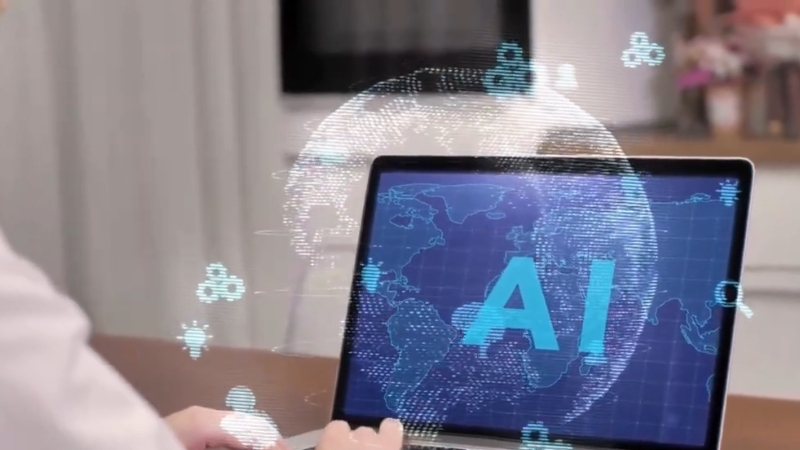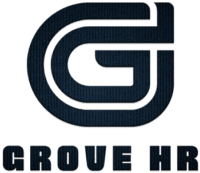HR departments will face unprecedented challenges in 2025, including talent shortages, complexities of remote work, and heightened employee expectations. AI tools for HR have emerged as game-changers, transforming how organizations attract, retain, and manage talent.
By 2025, it’s expected that 70% of organizations will utilize AI-driven tools for tasks such as recruitment, employee engagement, and performance management.
Modern AI tools for HR go beyond simple automation. Companies using innovative HR tools report remarkable results: Companies that utilize performance or hiring automation have observed up to a 91% increase in employee retention.
AI-driven HR platforms now handle everything from predictive analytics to talent acquisition automation, making them essential for competitive advantage.
Human resource professionals can now leverage artificial intelligence in HR to reduce administrative burden, improve decision-making accuracy, and focus on strategic initiatives that drive business growth.
Automation and AI integration in HR processes are set to increase by 40%, reducing the time spent on administrative tasks by half and allowing HR professionals to focus on strategic planning and human interaction.
The following five AI tools represent the pinnacle of HR tech trends 2025, each offering unique capabilities that address specific organizational needs. Let’s explore how each tool revolutionizes different aspects of human resource management.
1. Gusto: Best AI Software for HR Comprehensive Automation

Combines payroll, HR, and benefits automation powered by AI, streamlining operations for small to medium businesses. Gusto stands out as the most comprehensive AI-driven HR platform, offering integrated solutions that handle everything from onboarding to performance management.
Tools like BambooHR or Gusto automate tasks, eliminating the need for an extensive HR team and enabling business owners to focus on strategic growth.
The platform’s strength lies in its predictive analytics capabilities for managing the employee lifecycle. Gusto’s AI algorithms analyze compensation trends, predict retention risks, and recommend personalized benefits packages that align with individual employee preferences.
The system automatically adjusts payroll calculations based on performance metrics and market data, ensuring competitive compensation without manual intervention.
Gusto’s talent acquisition automation features include intelligent candidate matching, automated interview scheduling, and personalized onboarding workflows. The platform integrates with over 100 third-party applications, creating a unified ecosystem for HR operations.
Small businesses particularly benefit from Gusto’s scalable architecture, which grows with organizational needs without requiring significant technical expertise.
Key Features
Feature
Description
Automated Payroll Processing
Tax compliance and accurate calculations
AI-Powered Benefits
Personalized recommendations based on employee data
Predictive Analytics
Retention planning and risk assessment
Time Tracking Integration
Seamless attendance management system
Compliance Reporting
Automated regulatory documentation
2. Greenhouse: Recruiting AI Tools Excellence
Top AI tools, such as Julius AI, Greenhouse, and Gusto, enhance efficiency, accuracy, and decision-making in HR, offering tailored solutions for talent management, data analysis, and strategic planning.
Greenhouse leads the market in AI-powered recruitment solutions, transforming how organizations identify, attract, and hire top talent. The platform’s machine learning algorithms analyze candidate profiles against successful employee patterns, significantly improving hiring accuracy.
Greenhouse’s standout feature is its bias reduction technology, which anonymizes candidate information during initial screening phases. The system evaluates candidates based purely on skills and qualifications, promoting diversity and inclusion in hiring decisions.
Recruiters report 60% faster time-to-hire rates when using Greenhouse’s automated candidate scoring system.
The platform’s interview intelligence captures and analyzes conversations between candidates and hiring managers, providing objective feedback on communication skills, cultural fit, and technical competencies.
Greenhouse’s predictive modeling helps identify candidates most likely to succeed in specific roles, reducing costly hiring mistakes and improving long-term retention rates.
Advanced reporting capabilities provide insights into recruitment funnel performance, source effectiveness, and hiring manager consistency. Companies using Greenhouse typically see improved candidate quality scores and reduced recruitment costs within the first quarter of implementation.
Key Features
Feature
Description
AI-Powered Candidate Matching
Intelligent screening and qualification assessment
Bias Reduction Algorithms
Anonymized candidate evaluation process
Interview Intelligence
Automated conversation analysis and scoring
Predictive Hiring Models
Success probability calculations for candidates
Recruitment Analytics
Comprehensive funnel performance insights
3. SC Training: AI for Employee Engagement and Learning

This is our top pick for AI HR tools. This award-winning learning management system (LMS) aims to transform the world of work for the better through its centralized training system backed by cutting-edge AI technology. SC Training revolutionizes employee development through personalized learning paths and adaptive content delivery.
The platform’s AI engine analyzes individual learning patterns, skill gaps, and career aspirations to create customized training programs. Employees receive targeted content recommendations that align with their role requirements and professional development goals.
SC Training’s microlearning approach breaks complex topics into digestible modules, improving knowledge retention by up to 80%.
Real-time analytics track employee progress, identifying those who may need additional support or face advanced challenges. The system automatically adjusts content difficulty based on performance metrics, ensuring optimal learning experiences for all skill levels.
Managers receive detailed reports on team development progress, enabling them to make data-driven decisions about training investments.
SC Training’s mobile-first design ensures accessibility across devices, supporting remote and hybrid work environments. The platform integrates with popular HR systems, creating seamless workflows between learning management and performance evaluation processes.
Key Features
Feature
Description
Personalized Learning Pathways
Customized training based on individual needs
Adaptive Content Delivery
Dynamic difficulty adjustment based on performance
Real-Time Progress Analytics
Continuous monitoring and reporting system
Mobile-Optimized Interface
Cross-device accessibility for remote teams
HR System Integration
Seamless workflow between learning and performance
4. Zoho People: Performance Management AI Innovation
View this post on Instagram
This robust HR software solution is designed for SMEs seeking scalable automation. In 2025, Zoho’s AI will have become more intelligent, offering tools that predict employee burnout, enhance engagement, and automate time-consuming HR processes.
Zoho People excels in performance management through advanced predictive analytics and automated workflow optimization.
The platform’s burnout prediction algorithm analyzes employee behavior patterns, workload distribution, and engagement metrics to identify individuals at risk before performance declines.
Managers receive proactive alerts with recommended interventions, including workload adjustments, additional support resources, or schedule modifications, to help them address issues effectively. Companies report a 45% reduction in voluntary turnover after implementing Zoho’s predictive wellness features.
Zoho People’s continuous feedback system replaces traditional annual reviews with ongoing performance conversations. The AI engine suggests discussion topics based on project outcomes, peer feedback, and individual development goals. Automated goal tracking ensures alignment between personal objectives and organizational priorities.
The platform’s workforce analytics offer insights into productivity trends, team dynamics, and the efficiency of resource allocation. Zoho’s AI recommends optimal team compositions based on skill complementarity and collaboration patterns, improving project success rates by 30%.
Key Features
Feature
Description
Burnout Prediction Algorithms
Early warning system for employee stress levels
Continuous Performance Feedback
Ongoing conversation system replacing annual reviews
Automated Goal Tracking
Alignment monitoring between individual and company objectives
Workforce Analytics Dashboard
Comprehensive productivity and team dynamics insights
Team Optimization
AI-powered recommendations for optimal team composition
5. Deel: AI-Driven HR Platforms for Global Teams
@letsdeelDeel HR is a free global-first HR platform built to scale with your business. If you’re ready to manage your whole workforce through Deel, from direct employees to international workers and everything in between, talk to our sales team today. Link in bio.
With Deel AI, users can ask questions related to their workforce and team and receive answers quickly. Deel is an AI-powered HR software that caters to the growing demands of remote and international workforces.
Deel specializes in global workforce management, offering AI-powered solutions for international compliance, payroll, and employee experience optimization.
The platform’s compliance intelligence automatically tracks regulatory changes across more than 150 countries, ensuring adherence to local labor laws and tax requirements. Deel’s AI system alerts HR teams to potential compliance risks before they become costly violations.
International expansion becomes seamless with automated contract generation that incorporates local legal requirements and cultural considerations, ensuring a seamless process.
Deel’s workforce analytics provide insights into global team performance, identifying productivity patterns across different time zones and cultural contexts. The platform’s AI recommends optimal meeting schedules, project timelines, and communication strategies for distributed teams.
Companies report a 40% improvement in cross-cultural collaboration metrics after implementing Deel’s recommendations.
The platform’s automated onboarding process handles everything from document collection to equipment provisioning, regardless of employee location. Deel’s AI personalizes the onboarding experience based on role requirements, cultural background, and local customs, ensuring smooth integration for international hires.
Key Features
Feature
Description
Global Compliance Automation
Regulatory tracking across 150+ countries
International Payroll Processing
Unified platform for multi-country operations
Cross-Cultural Team Optimization
AI recommendations for distributed team collaboration
Automated Onboarding Workflows
Location-specific integration processes
Multi-Language Support System
Comprehensive localization for global teams
Implementation Strategies for AI Tools for HR

Successful AI adoption in HR requires careful planning and strategic implementation. Organizations should start with pilot programs that test AI capabilities in specific areas before implementing them on a full scale. Change management becomes crucial as employees adapt to new AI-powered workflows and processes.
Data quality assessment forms the foundation of effective AI implementation. HR departments must ensure that data is accurate, complete, and consistent across all systems before deploying machine learning algorithms.
Privacy and security considerations necessitate robust governance frameworks that safeguard sensitive employee information while facilitating AI-driven insights.
Training programs help HR professionals develop AI literacy and understand how to interpret machine learning outputs. Companies that invest in comprehensive AI education report faster adoption rates and better outcomes from their technology investments.
Regular performance monitoring ensures AI systems deliver expected results and identify areas for improvement.
Integration planning addresses how AI tools integrate with existing HR systems, ensuring seamless data flow and a unified user experience. Organizations typically achieve the best results when AI tools enhance, rather than replace, human capabilities, creating collaborative environments where technology amplifies human potential.
Overcoming AI Implementation Challenges
Common challenges in AI HR implementation include resistance to change, data quality issues, and integration complexity. Organizations must address these concerns proactively through comprehensive change management strategies and technical planning.
Effective communication about AI benefits and addressing employee concerns fosters trust and acceptance.
Budget considerations necessitate a careful evaluation of costs versus benefits, encompassing initial investment, ongoing maintenance, and training expenses. Many organizations find that AI tools deliver positive returns within the first year of implementation through efficiency gains and improved outcomes.
Vendor selection involves evaluating AI capabilities, integration requirements, and support services. Due diligence should include reference checks with similar organizations and pilot testing of key features. Long-term partnerships with AI vendors provide ongoing support and feature development.
Regulatory compliance adds complexity to AI implementation, particularly in terms of data privacy and bias prevention. Organizations must ensure AI systems meet legal requirements and ethical standards while delivering business value. Regular audits and compliance monitoring help maintain adherence to evolving regulations.
The Next Wave of AI in HR

The future of AI in HR is poised to deliver even more sophisticated capabilities, including emotional intelligence analysis, predictive career modeling, and automated succession planning.
Natural language processing advances will enable more intuitive interactions between employees and AI systems. Virtual reality integration will transform training and onboarding experiences.
Quantum computing applications may eventually enable real-time analysis of massive workforce datasets, providing unprecedented insights into human behavior patterns and organizational dynamics. Ethical AI frameworks will become increasingly important as systems make more complex decisions affecting employee careers and experiences.
The evolution toward augmented HR professionals will see human experts working alongside AI assistants that handle routine tasks and provide data-driven insights. Career paths in HR will increasingly require AI literacy and the ability to interpret machine learning outputs for strategic decision-making.
Conclusion
AI tools for HR represent a fundamental transformation in how organizations manage their most valuable asset: their people. The five tools highlighted in this article demonstrate the diverse capabilities available to HR professionals in 2025, from comprehensive automation to specialized solutions for global teams.
Success with AI in HR requires thoughtful implementation, continuous learning, and a commitment to striking a balance between technological capabilities and human insight. Organizations that embrace AI-driven HR platforms position themselves for sustained competitive advantage in talent acquisition, retention, and development.
The journey toward AI-powered HR begins with understanding current needs, evaluating available solutions, and taking deliberate steps toward implementation. As AI technology continues advancing, HR professionals who develop AI literacy and adapt to new capabilities will drive organizational success in the years ahead.

